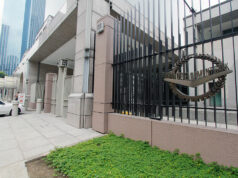‘Hot money’ reverses to net outflow in August
MORE FOREIGN FUNDS left the country in August as investors abroad lost appetite for risky emerging market assets due to increased worries about the global economy and the Philippines disappointing economic performance last semester, the Bangko Sentral ng Pilipinas (BSP) reported on Thursday.
August saw foreign portfolio investments — also known as “hot money” due to the ease by which these funds enter and leave the economy — posting a $391.74-million net outflow that reversed from net inflows of $225.85 million a year ago and $15.02 million in July.
Gross outflows in August hit $1.605 billion, higher than the $895.31 million figure recorded in the same million last year, though smaller than the $1.666 billion that left the country in July.
This offset the $1.214 billion that came in last month, which is an improvement from the $1.121 billion that foreigners invested in August 2018, but smaller than the $1.680 billion recorded in July.
BSP attributed hot money’s net outflow in August to “ongoing trade tensions between the US and China, the devaluation of the Chinese yuan, the inversion of the US Treasury bond yield curve [signalling a potential recession ahead], heightened protests in Hong Kong and the lower [four-year-low 5.5%] gross domestic product outturn for the second quarter of 2019” that led to a first-half expansion of the same pace and compared to the government’s 6-7% target for the entire year.
Analysts also blamed the net outflow on the escalating US-China trade war and the “ghost month” observed across East Asian markets.
“The August net outflows of foreign portfolio investments transactions is largely due to a confluence of local and external events contributing to a lot of uncertainties in markets and the general economy,” UnionBank of the Philippines, Inc. Chief Economist Ruben Carlo O. Asuncion said in an e-mail when sought for comment.
“The biggest contributor so far is the protracted trade war between the PRC [People’s Republic of China] and the US. Any news about progress and/or regression of trade agreement and resolution prospects moves and impacts market sentiments and perception.”
For Michael L. Ricafort, chief economist at the Rizal Commercial Banking Corp., “other external factors include the ghost month in East Asian markets and the vacation season in the US/Northern hemisphere that resulted in lower volumes and greater volatility in the financial markets.” — Luz Wendy T. Noble



